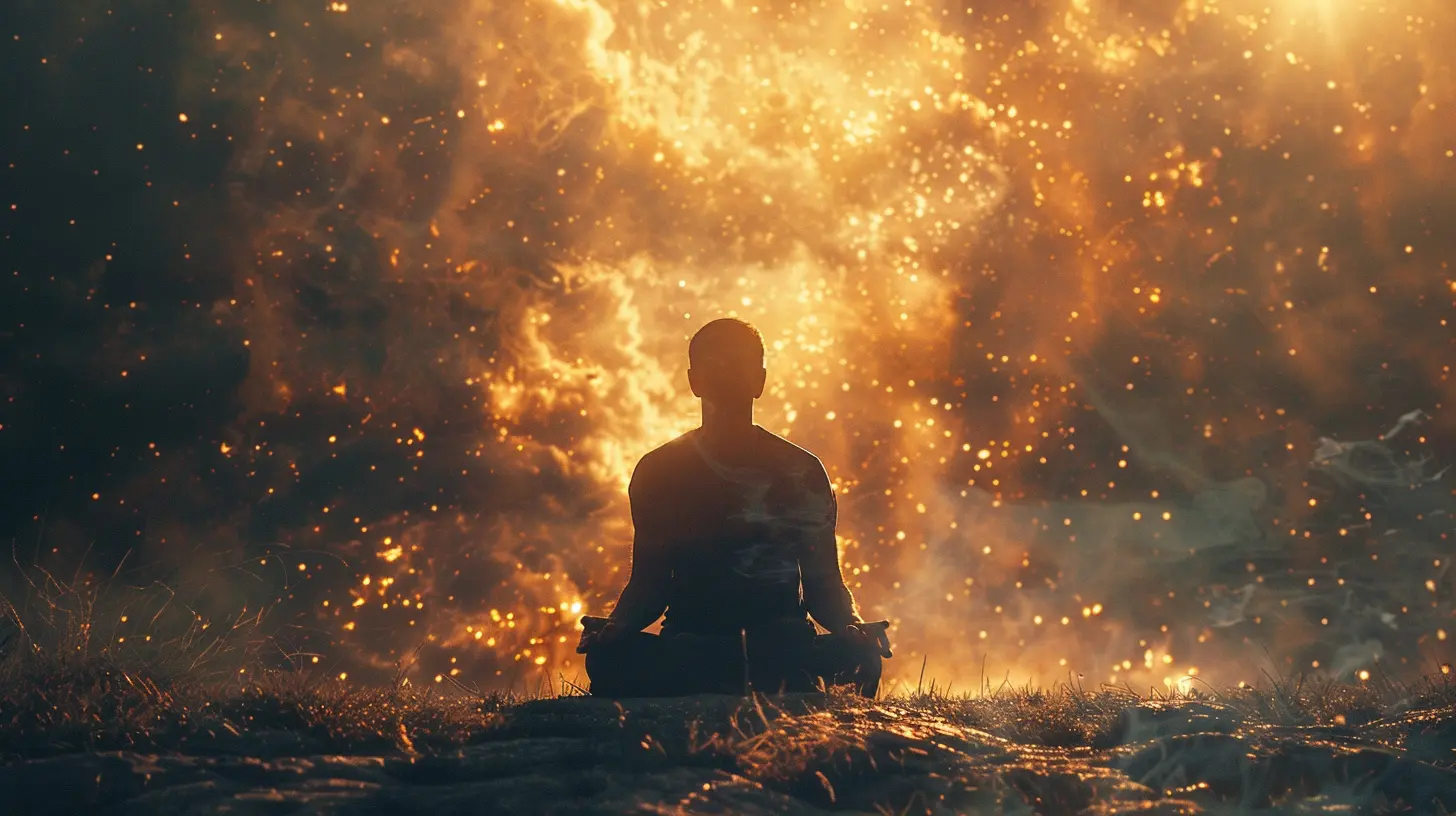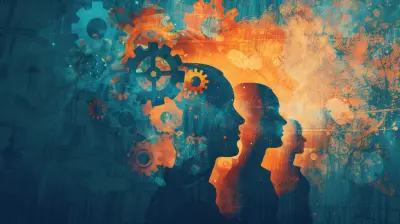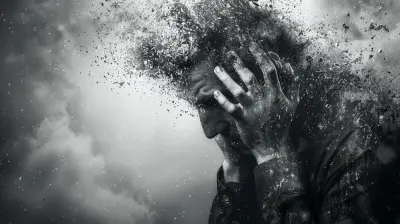How Self-Awareness Helps You Set Boundaries and Protect Your Energy
2 September 2025
Let’s be real for a second. Have you ever said “yes” when every cell in your body screamed “no”? Or left a conversation feeling strangely drained — like someone just zapped your emotional battery? If so, you’re not alone. Many of us struggle with setting healthy boundaries. But here’s the good news: self-awareness is the not-so-secret weapon that can change everything.
In this article, we're going to unpack how becoming more self-aware helps you protect your energy and create boundaries that feel less like walls and more like lovingly drawn lines in the sand. Let’s dive in.

What Is Self-Awareness, Really?
Before we get into the juicy stuff, let’s define self-awareness in plain English.Self-awareness is your ability to see yourself clearly — to understand your thoughts, emotions, habits, and triggers. It's like being the observer of your own mind. Imagine stepping outside yourself and watching what you do, how you feel, and why you react in certain ways.
It's more than just knowing your favorite coffee order or the fact that you hate small talk. It's about knowing what drives you, what drains you, and where your limits lie.
Sounds simple, right? But don’t be fooled. It takes real inner work — and a little courage.

Why Boundaries Matter in the First Place
Think of boundaries as your emotional property lines. Just like fences mark where your yard ends and your neighbor’s begins, boundaries tell the world where you end and others begin.Without boundaries:
- You say yes when you want to say no.
- You feel resentful and overwhelmed.
- People walk all over you (often without meaning to).
- Your energy gets depleted faster than your phone battery at 3% with no charger in sight.
With boundaries:
- You protect your time, peace, and emotional space.
- You create deeper and more respectful relationships.
- You stay aligned with your values and priorities.
- You show up as your best, most authentic self.
But here's the catch — you can’t set boundaries unless you know what your limits are. And that, my friend, is where self-awareness comes in.

The Link Between Self-Awareness and Boundaries
Self-awareness is like the internal compass that helps you know when something feels off — like an emotional GPS. You can’t draw a line in the sand unless you know where you stand.Let’s break down the connection a little more.
1. You Identify What Drains You
Ever spend time with someone and leave feeling like you’ve just been through a mental marathon? That’s a red flag.When you’re self-aware, you tune into those feelings instead of brushing them off. You notice patterns:
- “I always feel anxious after talking to my boss.”
- “That one friend always makes me feel guilty.”
- “I’m burnt out every time I over-schedule myself.”
Self-awareness gives you the language to name the problem. Once you know what’s draining you, you can start protecting your energy — not out of spite, but out of self-respect.
2. You Understand Your Needs
You can't set boundaries if you don’t know what you need. It’s like trying to build a fence without measuring your yard.Self-awareness helps you check in with yourself:
- Do I need more alone time?
- Do I need more appreciation or respect?
- Do I need to stop taking on everyone's problems?
Once you’re honest about your needs, you can start expressing them clearly to others — without shame, guilt, or confusion.
3. You Recognize Your Triggers
Triggers are emotional landmines. They set off strong reactions that sometimes surprise even us.But when you’re self-aware, you begin to recognize what sets you off and why. Maybe criticism triggers feelings of inadequacy. Or lateness makes you feel disrespected. When you know your triggers, you can set boundaries ahead of time — like saying, “I really value punctuality” — instead of exploding when someone’s late for the fifth time.
4. You Get Comfortable With Discomfort
Setting boundaries isn’t always rainbows and butterflies. It can be awkward. People might push back. You might feel guilty.But here’s the thing: self-awareness helps you sit with that discomfort and move through it. You begin to understand that guilt doesn’t mean you’re doing something wrong — it just means you’re doing something different.
When you’re grounded in who you are, you’re more likely to honor your needs even when it’s uncomfortable.

How To Build Self-Awareness (Without Driving Yourself Crazy)
Alright, so self-awareness is key. But how do you actually develop it?Let’s keep it practical.
1. Start With Journaling
There’s magic in putting pen to paper. Take five minutes a day and ask yourself:- What did I feel today?
- What situations gave me energy? What drained it?
- Did I say yes when I wanted to say no?
- What boundary do I wish I had set?
This reflective habit builds emotional muscles. You start to notice patterns and become more connected to your inner world.
2. Practice Mindfulness
Mindfulness is basically being present without judgment. It’s not just meditating on a mountaintop — it's noticing your thoughts as they're happening.You can practice mindfulness by:
- Taking deep breaths when you feel overwhelmed.
- Naming your emotions instead of reacting to them.
- Pausing before you respond in difficult conversations.
Mindfulness creates a gap between feeling and reacting — and in that gap, you get power.
3. Ask For Feedback
Sometimes we need a mirror. Ask a trusted friend, coach, or therapist:- “How do you experience me in stressful situations?”
- “Do you notice any patterns in how I respond to conflict?”
- “What do you think my strengths and blind spots are?”
Be open. You don’t have to agree with everything, but outside perspectives can help you see yourself more clearly.
Real-Life Examples of Boundaries Rooted in Self-Awareness
Let’s bring it down to earth with some examples. Here’s what it looks like when self-awareness leads to strong boundaries.Example 1: The Chronic Overcommitter
Sarah realizes she always says yes — to work projects, social invites, even helping friends move. But she’s constantly exhausted.
After journaling for a week, she notices a pattern: she says yes to avoid disappointing people.
Using that insight, she begins to set boundaries like:
“I’d really love to help, but I’m at capacity this week.”
Example 2: The Emotional Sponge
Mike feels emotionally drained after every conversation with his sister. She vents, complains, and leans on him for everything.
Through self-awareness, Mike realizes he feels responsible for fixing people's problems — even when it’s not his job. He sets a boundary:
“I can listen for a bit, but I can’t offer solutions right now. Maybe a therapist could help with that?”
Example 3: The People Pleaser at Work
Taylor always takes on extra tasks at work to avoid conflict. She starts resenting her coworkers.
After reflecting, Taylor notices her fear of being seen as "not a team player." She starts saying:
“I’d love to help, but I need to prioritize my current projects right now.”
Notice the pattern? Self-awareness shines a light on why we do what we do — and from that place, we can choose better.
The Ripple Effect: How Boundaries Protect Your Energy
Once you start using self-awareness to set boundaries, everything shifts. Your life starts to feel quieter — not in a boring way, but in a peaceful one. You begin to:- Say no without guilt.
- Prioritize your own peace.
- Stop absorbing other people’s drama.
- Attract healthier, more respectful relationships.
Protecting your energy isn’t selfish — it’s essential. You can’t pour from an empty cup. And boundaries are how you keep that cup full.
Final Thoughts: Boundaries Are a Form of Self-Love
Setting boundaries isn’t about being rigid or cold. It’s about knowing yourself so well that you can say, “This is what I need to stay mentally and emotionally healthy.”Picture yourself as a house — self-awareness is the foundation, and boundaries are the walls that keep the structure safe. Without them, everything inside gets exposed to the wind, rain, and chaos of the outside world.
So, the next time you feel drained or resentful, don’t just push through it. Pause. Get curious. Ask yourself what you're feeling and why.
Because you can’t protect your energy if you don’t know where it’s leaking.
And you deserve a life that feels whole, not hollow.
all images in this post were generated using AI tools
Category:
Self AwarenessAuthor:

Nina Reilly
Discussion
rate this article
1 comments
Bailey McGinn
Insightful read on boundaries and energy!
September 11, 2025 at 2:20 AM

Nina Reilly
Thank you! I'm glad you found it insightful!


